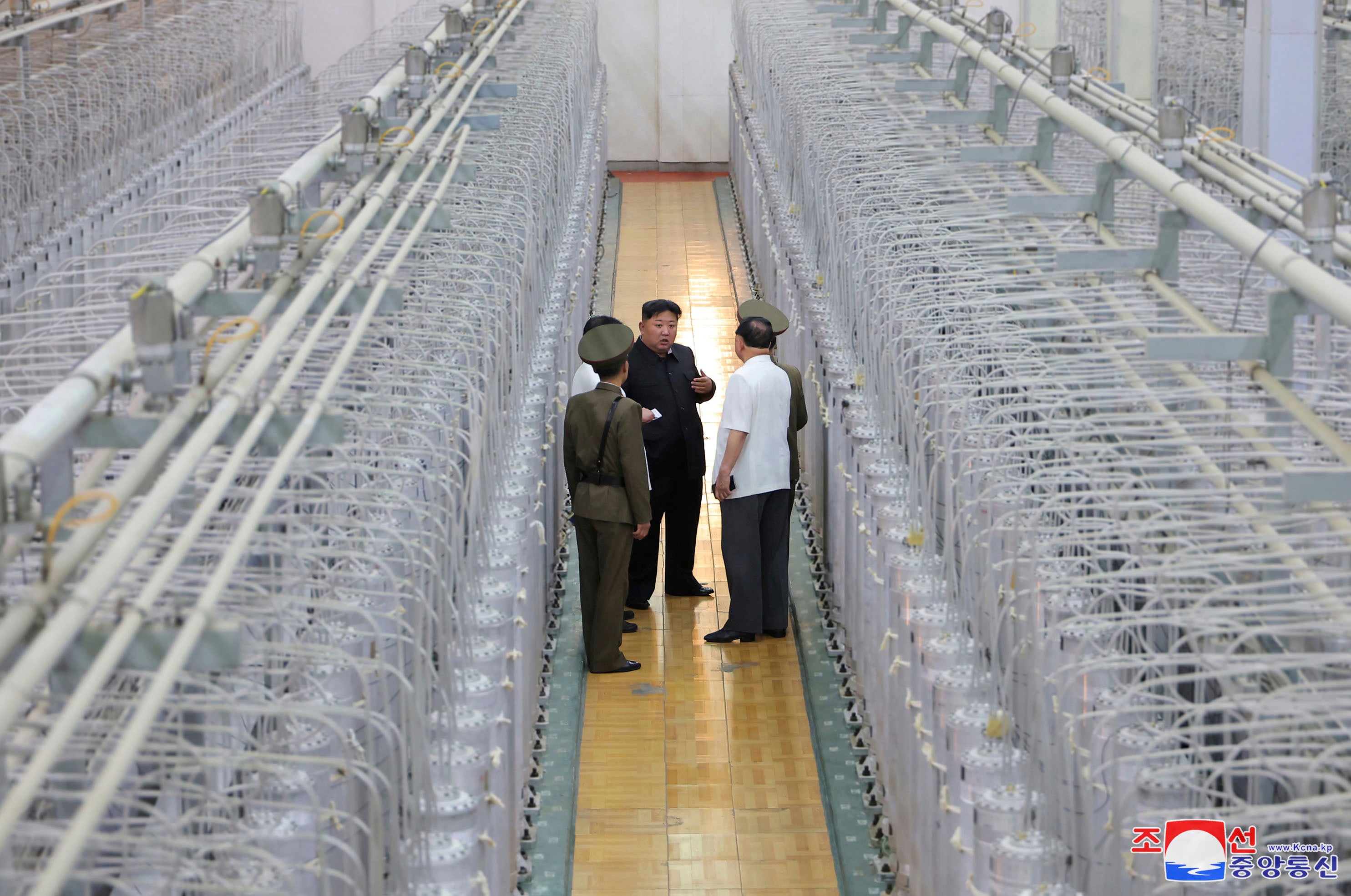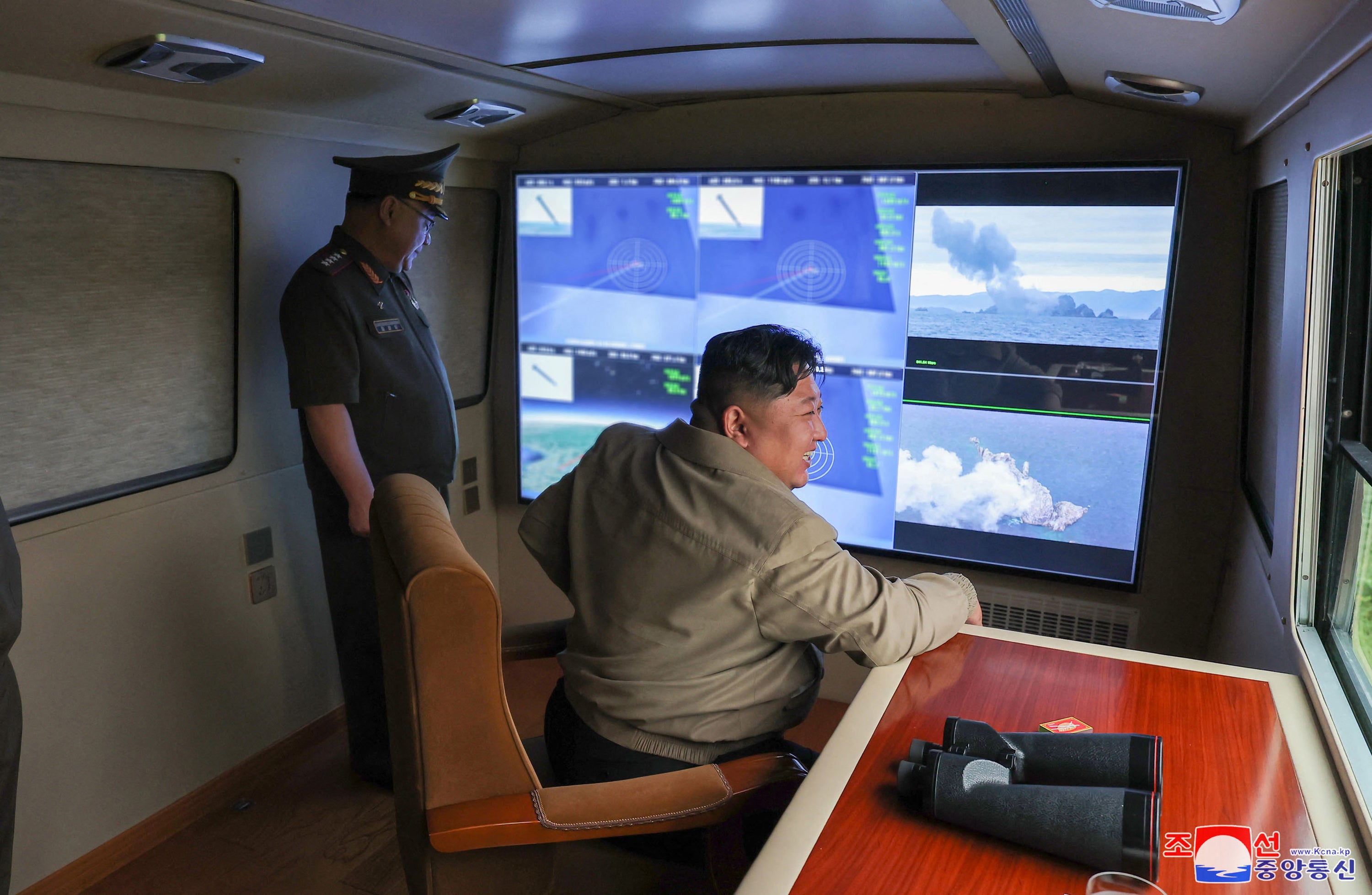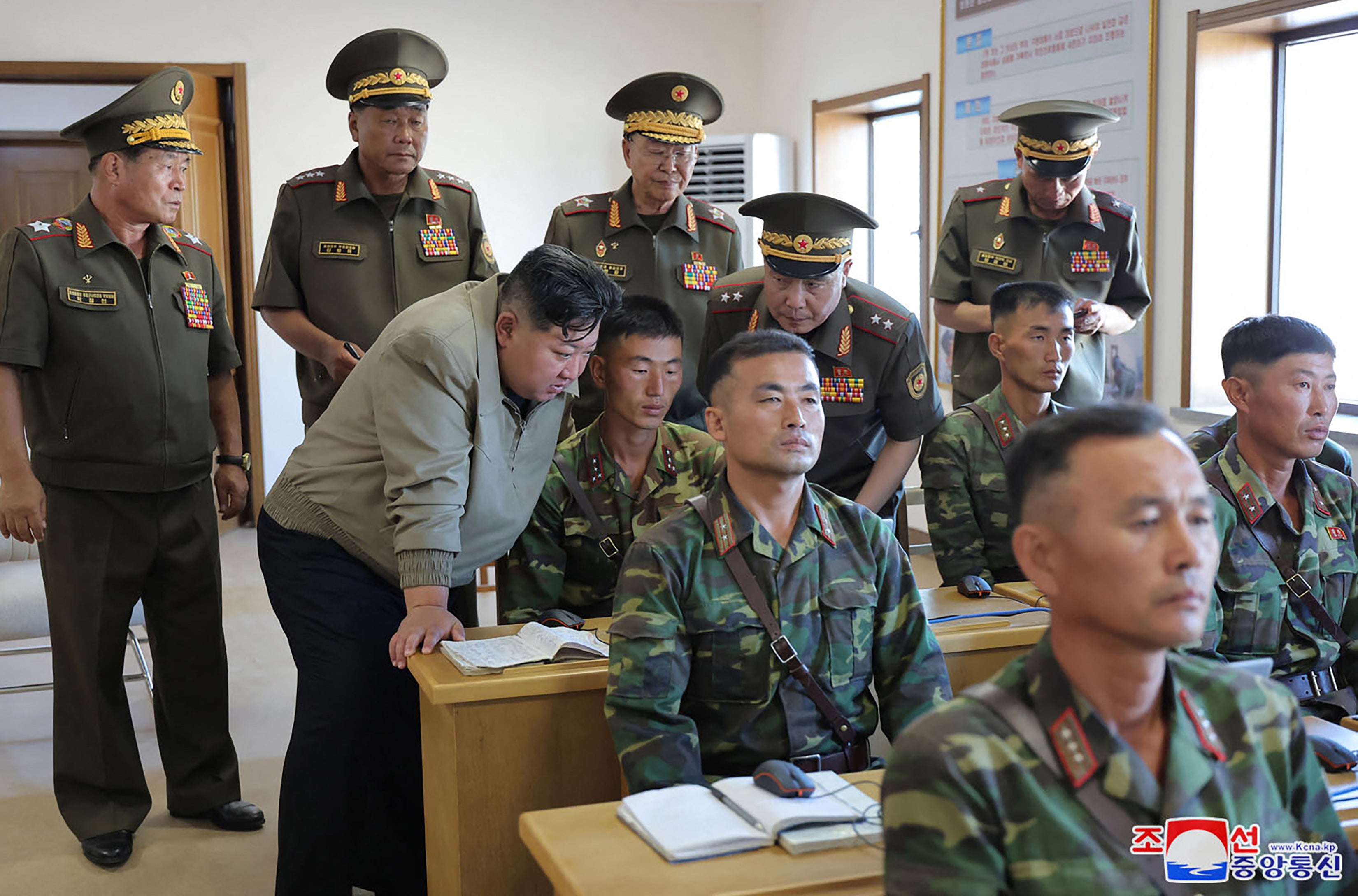North Korea shows first photos of uranium enrichment facility for nuclear weapons
Pictures show around 1,000 centrifuges which can produce enough enriched uranium in a year to make one nuclear bomb, security expert says
North Korea offered the world a rare look into a secretive facility producing enriched uranium as leader Kim Jong-un called for an “exponential” increase in nuclear weapons production.
Mr Kim visited the control room of the uranium enrichment facility and a construction site aimed at increasing its capacity for nuclear weapons production, KCNA reported. Pictures released by the state news agency on Friday showed the leader being briefed by scientists as he walked along rows of tall grey tubes, though it did not specify when or where the visit took place.
The photos showed around 1,000 centrifuges. If operated throughout the year, they could produce 20-25kg of highly enriched uranium, enough to manufacture one nuclear bomb, according to security expert Yang Uk from Seoul’s Asan Institute for Policy Studies.
It was not clear if the site Mr Kim toured was part of the Yongbyon nuclear complex, but this was North Korea’s first disclosure of a uranium enrichment facility since 2010.
Tensions on the Korean Peninsula deepened last year after North Korea test-launched the solid-fuelled Hwasong-18 intercontinental ballistic missile – its most advanced weapon designed to strike the mainland US – in its third test in 2023.
Uranium is a radioactive element that exists naturally. To make nuclear fuel, raw uranium undergoes processes that result in a material with an increased concentration of the isotope uranium-235.
The Yongbyon complex, which North Korea calls “the heart” of its nuclear programme and research, has been at the centre of international concerns for decades. It’s not clear exactly how much weapons-grade plutonium or highly enriched uranium has been produced at Yongbyon and where North Korea stores it.
The move was likely aimed at increasing pressure on the US and its allies, particularly South Korea and Japan, which have long been critical of the isolated country’s nuclear programme.
The Security Council imposed sanctions after North Korea’s first nuclear test explosion in 2006 and tightened them over the years in a total of 10 resolutions seeking to cut funds and curb its nuclear and ballistic missile programmes.
The last sanctions resolution was adopted by the council in 2017. China and Russia vetoed a US-sponsored resolution in May 2022 that would have imposed new sanctions over a spate of intercontinental ballistic missile launches. Since then, the two veto-wielding permanent council members have blocked any council action, including media statements.

Mr Kim underlined the need to expand uranium enrichment capacity and develop a new centrifuge, claiming his country needed greater defence capability against threats by the US and its allies.
He expressed “great satisfaction over the wonderful technical force of the nuclear power field” held by North Korea, KCNA reported.
South Korea criticised its neighbour’s “illegal” pursuit of nuclear weapons in violation of UN sanctions” and called it a significant threat to international peace.

For outside analysts, “the images will provide a valuable source of information for rectifying our assumptions about how much material North Korea may have amassed to date”, Ankit Panda of the Carnegie Endowment for International Peace told the Associated Press.
“Overall, we shouldn’t assume North Korea will be as constrained as it once was by fissile material limitations. This is especially true for highly enriched uranium where it’s significantly less constrained in its ability to scale up than it is with plutonium.”

A few days ago, in a speech marking the 76th anniversary of the founding of North Korea, Mr Kim said there would be no limit on the expansion of the country’s military prowess, KCNA reported on Tuesday.
Pyongyang last month said it had moved 250 new mobile launchers for ballistic missiles capable of delivering nuclear warheads to the frontline. The military also unveiled new suicide attack drones. All this, South Korea said, was happening for the first time.
Join our commenting forum
Join thought-provoking conversations, follow other Independent readers and see their replies
Comments
Bookmark popover
Removed from bookmarks